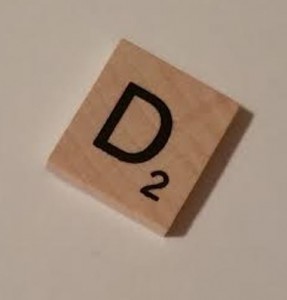I love flowers. I’m not a gardener, because gardening takes work and patience. I also tend to over water or under water any plants placed in my care. Flowers really don’t have a chance with me around. So I will stop by my local florist or grocery store for all of my floral arrangements.
 But I still love flowers. So much so, that the heroines in the novels I write are named after flowers. Peony. Crisanta. Primrose. Iris. If I hear an unusual name, I tuck it away as if it were a secret treasure that will one day be discovered.
But I still love flowers. So much so, that the heroines in the novels I write are named after flowers. Peony. Crisanta. Primrose. Iris. If I hear an unusual name, I tuck it away as if it were a secret treasure that will one day be discovered.
My Mom’s favorite flowers are daisies. And I must admit they bring a ray of sunshine to any room where they are displayed. Daisies bring a smile to my face. Not just because of the flower itself, but because of who loves them. Mom.
God apparently loves flowers too, for in the midst of all of His Creation, He created some beautiful flowers. And there are many references to flowers in Scripture, but since we are working with the letter “D” today, let’s look at a few that begin with the letter “D.”
First we have Date Palm or the technical name, Phoenix dactylifera. The New American Standard Version of the Bible uses this term in Exodus 15:27. “Then they came to Elim where there were twelve springs of water and seventy date palms, and they camped there beside the waters.”
The Hebrew nation had been released from bondage in Egypt and soon into their desert journey, they found a watering hole where the water was undrinkable. God produced fresh water from bitter water in this place to show Israel that He would care for their every need if they listened to Him.
This great nation then traveled on to Elim where they not only found good drinking water, but also date palms. I’m sure this would have been a grand treat in the middle of the desert.
The next flowering plant that can be found in Scripture is Dill (Anethum graveolens). I enjoy this fragrant, delicious herb, but I also know that it can take over an entire section of a garden if allowed.
In Isaiah’s section of woes, he uses a farming analogy. The farmer, at the right time, clears the land and levels it, but then he doesn’t leave it in that state. The farmer sows his crops.
Again from the New American Standard Bible we see that dill is one of those crops the farmer sows. “Does he not level its surface and sow dill and scatter cumin? And plant wheat in rows, barley in its place and rye within its area?” (Isaiah 28:25 – NASB)
In this same chapter, Isaiah goes on to remind of how different crops are treated after the harvest. “For dill is not threshed with a threshing sledge, or is the cartwheel driven over cumin; But dill is beaten out with a rod, and cumin with a club.” (Isaiah 28:27 – NASB)
Dill is mentioned one more time in the New American Standard Bible. Jesus spoke the word in Matthew 23:23, again in relation with woes. As Jesus spoke to the Scribes and Pharisees, He condemned them for only tithing with spices and for neglecting people. Listen to Jesus’ words.
“Woe to you, Scribes and Pharisees, hypocrites! For you tithe mint and dill and cumin, and have neglected the weightier provisions of the law: justice and mercy and faithfulness; but these are the things you should have done without neglecting the others.” (Matthew 23:23 – NASB)
The final flowering plant I’d like to share with you is Dove’s Dung (Ornithogalum narbonense). The only place we find this term is in 2 Kings 6:25 and only in the New American Standard Bible. Other versions have chosen to translate this word as seed pods or wild onions.
Josephus, a Jewish historian, referred to dove’s dung as being used as a salt substitute. Apparently Dove’s Dung was a food eaten during the famine in Samaria as found in 2 Kings 6:25 and how expensive it was to purchase.
“There was a great famine in Samaria; and behold, they besieged it, until a donkey’s head was sold for eighty shekels of silver, and fourth of a kab of dove’s dung for five shekels of silver.” (2 Kings 6:25 – NASB)
I believe we can find a few lessons from these flowering plants that God has placed on this earth. See if you agree.
We should bask in and enjoy God’s creation.
We should trust God to care for us in all situations and we should listen to Him.
We should be mindful of the things in our lives that seem to consume us.
We should accept God’s “threshing” process to create Christ-like, usable people for His kingdom.
We should tithe in a way that is pleasing to God.
We should seek justice, mercy and faithfulness.
We should not neglect people.
We should be thankful for the great price Jesus paid so that we might have eternal life.
Who would have thought so many lessons could be learned from these three little flowering plants God created! I know I wasn’t expecting this, but I also believe that God can show up in the smallest of things in our lives and if we keep our eyes open, He will reveal Himself to us.
How has God revealed Himself to you today? What is He teaching you? I would love to hear from you! Why not leave a comment to share your thoughts?
The weather is turning spring-like here in Colorado. My daffodils are beginning to pop through the earth. It is just a matter of time before all of the flowering trees in my yard are in full blossom. It is a wonderful time of the year to acknowledge our new life in Christ. I pray that you are doing just that.
Grace and peace be yours in abundance,
Donna

 December 14th, 2015
December 14th, 2015  dsisler
dsisler 
 Posted in
Posted in  Tags:
Tags: 
